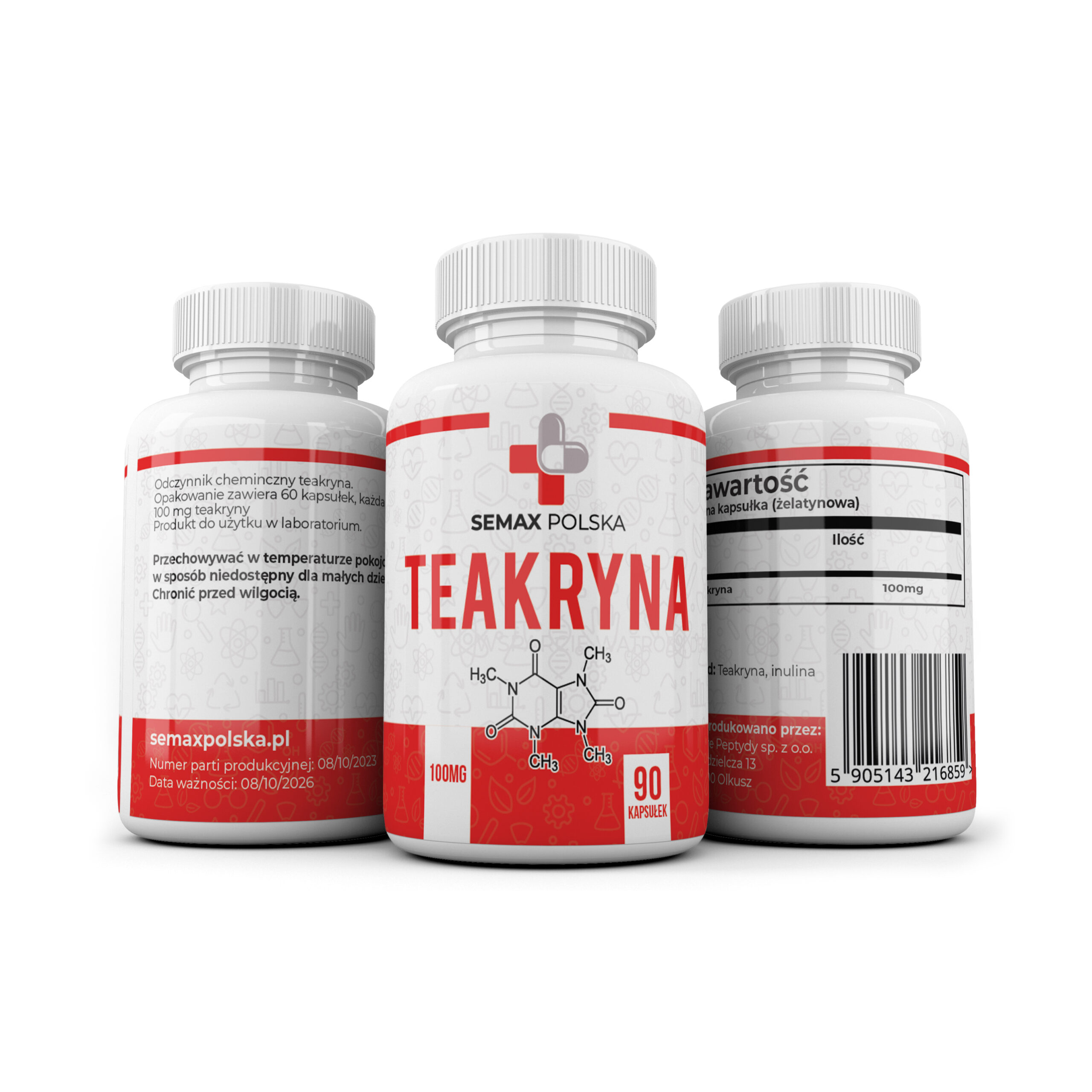Table of contents
Theacrine
Theacrine belongs to purine alkaloids, which are present in Chinese tea, among others. In terms of chemical structure, theacrine is similar to caffeine. Its action is also aimed at combating fatigue, stimulating the body to action and offsetting drowsiness. Unlike caffeine, theacrine does not cause heart palpitations or raise blood pressure. It also does not cause irritability, and it lasts longer and has a gentler effect than caffeine stops.The effect of theacrine is seen on many levels. First and foremost, however, it is said to combat feelings of fatigue and stimulate the body to increased activity. In addition, it contributes to improving cognitive functions, that is, thought processes, memory and concentration. In addition, theacrine exhibits an energizing effect, positively influencing our mood and improving our well-being.
Theacrine effectively increases the body's endurance, allowing it to work harder and longer without feeling tired. It also has anti-inflammatory and analgesic effects. By increasing the concentration of adenosine within the hippocampus, it positively affects the quality of sleep.
However, theacrine, comparable in its effects to caffeine, has a major advantage over this substance present in coffee and tea. First of all, it lasts longer and does not cause side effects sometimes present with caffeine, such as an increase in blood pressure or accelerated heart rate. Theacrine is used for chronic fatigue, as well as in situations requiring greater concentration and better memory. By replenishing energy reserves and lowering the feeling of fatigue, it increases the effectiveness of workouts and allows for more intense physical exertion.


